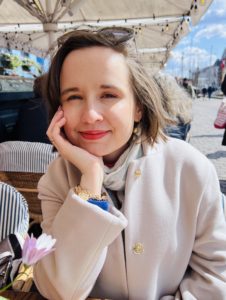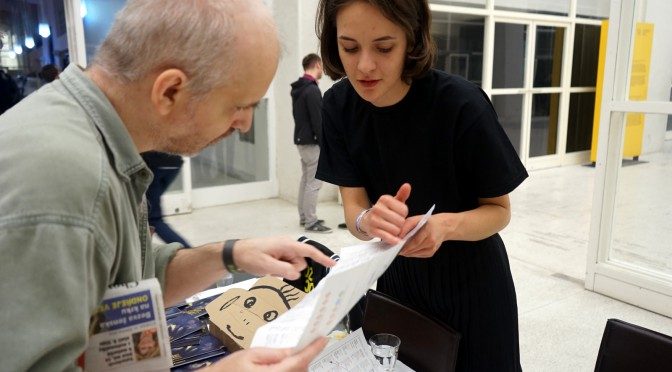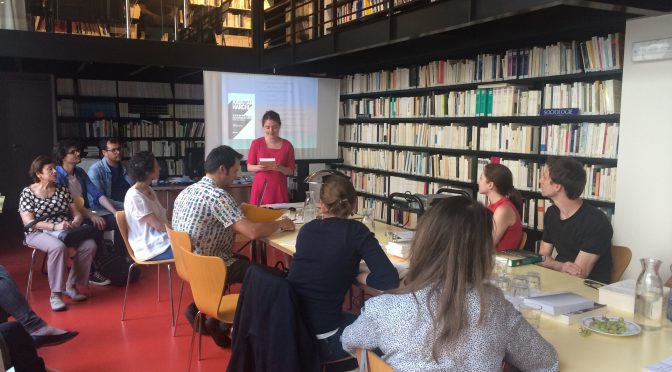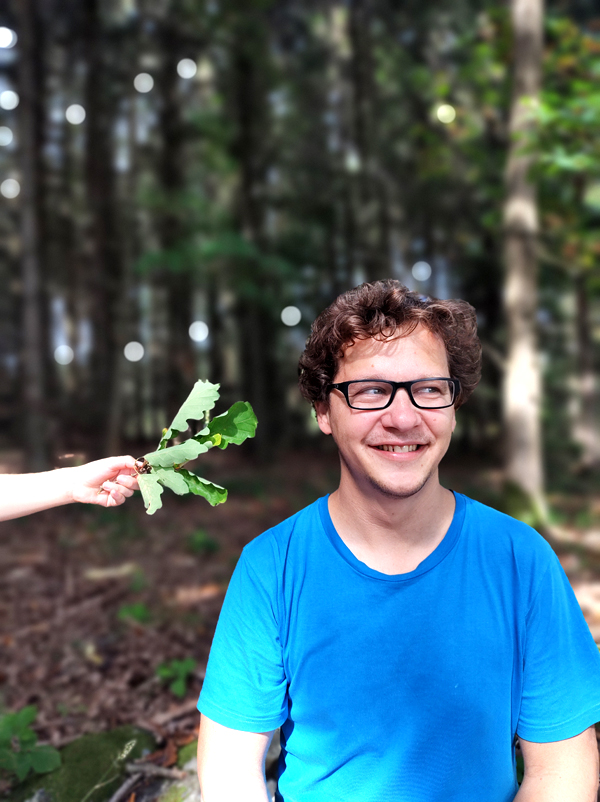Textualized Memories. Toward a Generic History of Psychoanalytic Discourses and Practices
Research Area 2 – Norms & Transgressions
 This project explores biographical and autobiographical narrative strategies developed by psychoanalysts and describes the varied roles played by biographies, memoirs, and autobiographies within psychoanalytic literature. By analyzing both published and unpublished egodocuments this project introduces and develops the theory of “lifewriting turn” in the history of psychoanalytic literature with a special emphasis on the generic specificity of psychoanalysts’ life writing. Sigmund Freud’s close collaborators such as Fritz Wittels, Helena Deutsch, Siegfried Bernfeld, Marie Bonaparte, Edoardo Weiss, Max Schur, and Theodor Reik, alongside Ernest Jones, have contributed significantly to the reinterpretation and transformation of the genre of biography, memoir, and autobiography in 20th century.
This project explores biographical and autobiographical narrative strategies developed by psychoanalysts and describes the varied roles played by biographies, memoirs, and autobiographies within psychoanalytic literature. By analyzing both published and unpublished egodocuments this project introduces and develops the theory of “lifewriting turn” in the history of psychoanalytic literature with a special emphasis on the generic specificity of psychoanalysts’ life writing. Sigmund Freud’s close collaborators such as Fritz Wittels, Helena Deutsch, Siegfried Bernfeld, Marie Bonaparte, Edoardo Weiss, Max Schur, and Theodor Reik, alongside Ernest Jones, have contributed significantly to the reinterpretation and transformation of the genre of biography, memoir, and autobiography in 20th century.
This project proposes the first systematic description of the biographical and autobiographical narrative strategies developed by Freud’s eminent disciples. The in-depth and systematic description will be based on a throughout research in their published and unpublished egodocuments such as autobiographies, memoirs, biographies, autobiographical and self-analytical notes. The numerous published biographies, memoirs, and autobiographies of Freud’s close associates, as well as their previously unpublished – and largely unknown – archival notes, drafts, and interviews’ manuscripts, have not received sufficient interest and reflection in the light of genre theory, as well as the cultural history of writing practices.
CV
Education and professional experience
2022-2025: Research-and-teaching assistant at the University of Warsaw, Institute of Polish Culture
2019–2023: Ph. D., Cultural Studies, Paris-Sorbonne/University of Warsaw, summa cum laude
Dissertation title: “Narrative Assemblages. Theories and Practices of Psychoanalysis in Central Europe Between Self-Analysis, Life Writing, and Fiction”
Jury members: Professor Antal Bókay, Professor Adam Lipszyc, Professor Josef Fulka, Professor Marta Rakoczy (UW), Professor Małgorzata Smorąg-Goldberg (Paris-Sorbonne), Professor Adam Bžoch, Professor Paweł Rodak, Professor Agnieszka Karpowicz, Professor Clara Royer, Professor Justyna Kowalska-Leder, Professor Roman Chymkowski
2017–2019: MA in cultural studies and literary studies, Paris-Sorbonne – University of Warsaw, summa cum laude
2016–2017: BA in cultural studies, University of Warsaw (Institute of Polish Culture), summa cum laude
Publications (selection):
Books
2023 : Theories and Practices of Psychoanalysis in Central Europe. Narrative Assemblages of Self-Analysis, Life Writing, and Fiction, Routledge (Publication date: October 13, 2023)
2021: Auto-ekonomie zapisu Juliana Ochorowicza. Codzienne praktyki piśmienne i badawcze psychologa [Julian Ochorowicz’s Self-Economies. The Psychologist’s Everyday Writing Practices], University of Warsaw Press.
2020: Obrazy czarności. Wyobraźnia imperialna i różnica rasowa w niemieckiej kulturze XIX i XX wieku. Siedem szkiców z antropologii wrogości, Wydawnictwa Uniwersytetu Warszawskiego [The Images of Blackness. Imperial Imagination and Racial Differences in German Culture of the 19th and 20th centuries. Anthropology of Hostility — Seven Sketches], University of Warsaw Press.
Edited Books
2021: Imago psychoanalizy. Antologia [Imago of Psychoanalysis. An Anthology], ed. by Agnieszka Sobolewska. Trans. Marek Chojnacki and Tadeusz Zatorski, Słowo/obraz terytoria.
Peer-reviewed articles in academic journals
2024: “Psychoanalytic Readings of the Soul: The Birth of Psychography and the New Strategies of Psycholiterary Portraiture,” Biography: An Interdisciplinary Quarterly, vol. 46, no. 2.
2022: “Theories and Practices of Psychoanalysis in Central Europe Immediately after World War II”, The International Journal of Psychoanalysis, forthcoming.
2022: “Freud’s Queer Fellow: Georg Groddeck Between Psychoanalytic Theory and Literary Modernism,” Oxford German Studies, vol. 51, no. 1, pp. 45-76.
2021: “Isidor Sadger’s Images as the Other. Psychoanalysis Between Life Writing and Literary Experimentalism,” Biography: An Interdisciplinary Quarterly, vol. 44, no. 4, pp. 561-578.
2020: “The Images of Blackness: Savages, Workers and the Emergence of the Counterimagination in Germany (1884-1925),” Theoretical Practice, vol. 36, no. 2, pp. 137–74.
2019: “Freud’s Disciples Between Biography and Autobiography. Towards a Collective History of the Psychoanalytic Movement,” Autobiography, vol. 13, no. 2, pp. 19–30.
2019: “Freud Museums. Art, Materiality, and Psychoanalysis,” Theories and Practices of Visual Culture, 2019, no. 23.
Grants and Scholarships
2023-2024: Research Association at CEFRES, Prague
2023-2024: a visiting scholar at the University of Illinois Chicago under the Bekker Scholarship (NAWA Programme)
2023: FNP START 2023 scholarship for the best young Polish scientists (with distinction for outstanding achievements)
2022-2025: Scholarships of the Ministry of Science and Higher Education for outstanding young scientists
2022-2023 Research Association at CEFRES, Prague
2022: Józef Tischner Award and Junior Visiting Fellow at the Institute for Human Sciences,Vienna
2021–2022: Research Fellowship and Mobility Grant at CEFRES, Prague.
2021–2023: National Science Center Scholarship in Grant Project “Life writing competitions. Memoir-writing practices in Poland 1918-1939 (analysis – reception – meaning),” 2020/37/B/HS2/02154
2019–2023: Scholarship for Ph. D. students at the University of Warsaw.
2018–2022: Diamond Grant Award funded by the Polish Ministry of Science and Higher Education for the research project “Between Autoanalysis and Autobiography. Everyday Writing Practices of Freud’s First Disciples,” DI2017 004647.



 My main research focuses on representations of the past in digital games, how they are constructed by developers and perceived by players. About 56% of the Czech population regularly play digital games; the average age of a player is 33 years and the share of female players is over 30%. Titles set in the past or inspired by history regularly top the sales charts. However, the content of games is not much talked about in mainstream media, and academic historians have so far ignored them. Recent research shows that the digital games have become an influential historical medium due to their interactivity, performativity and immersion. This new form of popular history actually reflects and influences our historical culture, i.e. ‘how we both collectively and individually think about, understand, negotiate and talk about that past in the present’.
My main research focuses on representations of the past in digital games, how they are constructed by developers and perceived by players. About 56% of the Czech population regularly play digital games; the average age of a player is 33 years and the share of female players is over 30%. Titles set in the past or inspired by history regularly top the sales charts. However, the content of games is not much talked about in mainstream media, and academic historians have so far ignored them. Recent research shows that the digital games have become an influential historical medium due to their interactivity, performativity and immersion. This new form of popular history actually reflects and influences our historical culture, i.e. ‘how we both collectively and individually think about, understand, negotiate and talk about that past in the present’.  This project explores biographical and autobiographical narrative strategies developed by psychoanalysts and describes the varied roles played by biographies, memoirs, and autobiographies within psychoanalytic literature. By analyzing both published and unpublished egodocuments this project introduces and develops the theory of “lifewriting turn” in the history of psychoanalytic literature with a special emphasis on the generic specificity of psychoanalysts’ life writing. Sigmund Freud’s close collaborators such as Fritz Wittels, Helena Deutsch, Siegfried Bernfeld, Marie Bonaparte, Edoardo Weiss, Max Schur, and Theodor Reik, alongside Ernest Jones, have contributed significantly to the reinterpretation and transformation of the genre of biography, memoir, and autobiography in 20th century.
This project explores biographical and autobiographical narrative strategies developed by psychoanalysts and describes the varied roles played by biographies, memoirs, and autobiographies within psychoanalytic literature. By analyzing both published and unpublished egodocuments this project introduces and develops the theory of “lifewriting turn” in the history of psychoanalytic literature with a special emphasis on the generic specificity of psychoanalysts’ life writing. Sigmund Freud’s close collaborators such as Fritz Wittels, Helena Deutsch, Siegfried Bernfeld, Marie Bonaparte, Edoardo Weiss, Max Schur, and Theodor Reik, alongside Ernest Jones, have contributed significantly to the reinterpretation and transformation of the genre of biography, memoir, and autobiography in 20th century.